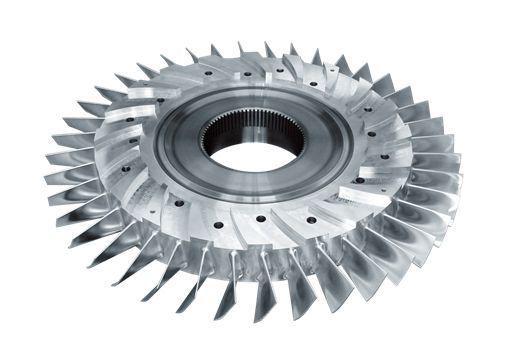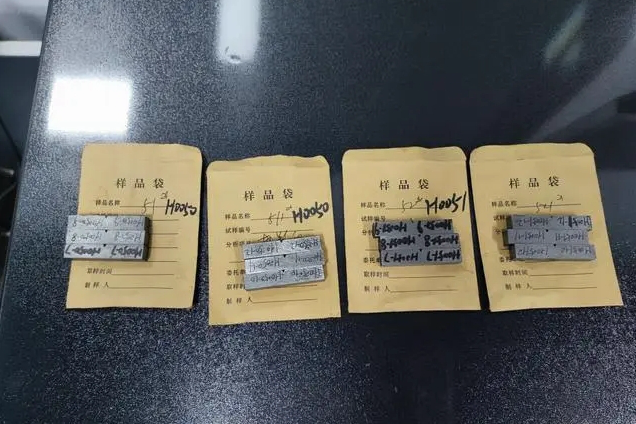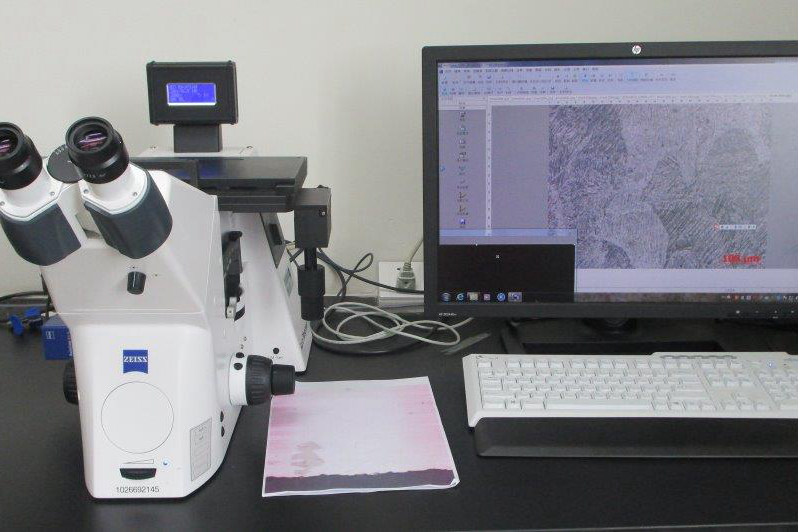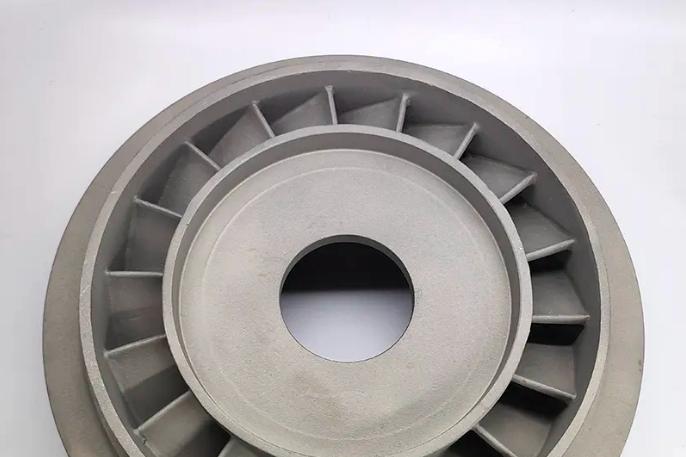5 Advantages of Titanium Alloy Casting Equipment In Vacuum Investment Casting
Titanium alloys have become indispensable in industries demanding high-performance materials, such as aerospace, medical, and automotive sectors. Their unique properties, including a high strength-to-weight ratio, exceptional corrosion resistance, and heat resistance, make them ideal for critical components.
Vacuum investment casting is a manufacturing process that complements titanium alloys by ensuring precision, minimizing contamination, and enabling intricate designs. Using specialized titanium casting equipment in this process provides distinct advantages, including enhanced material integrity, improved dimensional accuracy, and superior surface quality.

Manufacturing Process for Titanium Alloy Casting
Vacuum investment casting is a multi-step process designed to produce high-precision titanium components with minimal impurities. This process is especially suited for aerospace and high-performance industries where material purity and strength are critical. Incorporating titanium alloy casting equipment ensures consistency and reliability throughout the production cycle, making it a preferred method for complex geometries and demanding applications.
The process begins with creating a detailed pattern, usually made from wax or resin, representing the final part. This pattern is coated with a ceramic slurry to form a hard shell that will act as the mold. The pattern is then removed, leaving a cavity in the ceramic shell. The precision of this stage is critical, as it sets the foundation for achieving dimensional control in the final titanium component.
Titanium alloy casting equipment comes into play during the vacuum melting and pouring stages. The titanium alloy is melted in a vacuum or inert atmosphere to prevent oxidation, ensuring the material's purity and strength. The molten metal is poured into the mold, and the vacuum environment eliminates air pockets and minimizes porosity. After solidification, the ceramic shell is removed, and the casting undergoes post-processing to achieve the desired finish. This process aligns with precision wax pattern creation techniques, ensuring accuracy and repeatability.
Using vacuum equipment ensures a controlled environment, which is crucial for titanium alloys, as they are highly reactive to oxygen and other atmospheric gases at elevated temperatures. This controlled process results in components with superior mechanical properties and surface integrity. Incorporating advanced mold materials further supports the production of defect-free castings with optimal performance.
Typical Titanium Alloys Used in Vacuum Investment Casting
Titanium alloys are prized for their exceptional properties, making them suitable for various high-performance applications.
Ti-6Al-4V (TC4) is one of the most commonly used titanium alloys. It offers an excellent combination of strength, corrosion resistance, and lightweight properties, making it ideal for aerospace components, medical implants, and automotive parts.
Ti-6Al-2Sn-4Zr-6Mo is valued for its superior thermal stability, enabling its use in high-temperature environments, such as jet engines and gas turbines.
Ti-5Al-5V-5Mo-3Cr (Ti5553) is known for its high tensile strength, making it a preferred choice in structural aerospace applications where durability and weight savings are critical.
Ti-6Al-7Nb is a biocompatible titanium alloy widely used in medical implants, particularly joint replacements and surgical tools. Its resistance to wear and corrosion ensures longevity in demanding medical environments.
These alloys exhibit high strength-to-weight ratios, corrosion resistance, and heat resistance, essential for components operating under extreme conditions. Vacuum investment casting enables the precise fabrication of these alloys while maintaining their unique properties.
Post-Processes Comparison for Titanium Alloy Castings
Post-processing is essential for enhancing the performance and aesthetics of titanium alloy castings.
Hot Isostatic Pressing (HIP) is a critical post-process that eliminates internal voids and porosity, improving titanium castings' mechanical properties and structural integrity. This process ensures uniform density and enhances fatigue resistance, which is particularly important in aerospace and medical applications. The role of HIP in boosting strength and reliability ensures the high quality of components used in critical environments.
Thermal Barrier Coatings (TBC) are applied to titanium components to improve their heat resistance and extend their lifespan in high-temperature environments. These coatings are especially beneficial in turbine blades and exhaust systems applications. TBC’s role in extending component life is crucial for parts subjected to thermal stress.
Surface treatments and polishing are used to improve titanium castings' wear resistance and surface finish. Techniques such as electro-polishing and sandblasting remove surface imperfections and create a smooth, high-quality finish. Surface treatments for optimizing corrosion resistance and improving surface quality are essential to enhance titanium alloy components' durability and aesthetics.
Comparing these post-processes highlights their complementary benefits. For example, HIP ensures internal structural integrity, while surface treatments focus on external durability and appearance. Combining these processes ensures that titanium castings meet the stringent requirements of industries like aerospace and medical.
Testing and Quality Assurance in Titanium Casting
Quality assurance is critical in the manufacturing of titanium alloy castings to ensure their performance and reliability in demanding applications.
Non-destructive testing (NDT) methods, such as X-ray and ultrasonic testing, detect internal defects such as cracks, voids, or inclusions. CT scanning provides a detailed view of complex internal geometries, verifying the completeness of the casting and identifying potential weaknesses.
Material property testing evaluates the mechanical performance of titanium castings. Tensile testing measures strength and flexibility, while fatigue testing assesses the component’s ability to withstand repeated stress cycles. Corrosion resistance testing ensures the casting can endure harsh environments, such as saltwater exposure or chemical processing.
Microstructural analysis is performed using metallographic microscopy and scanning electron microscopy (SEM). These techniques provide insights into the grain structure, phase distribution, and material consistency, ensuring that the casting meets all specifications.
Advanced testing equipment and stringent quality control protocols ensure that titanium alloy castings are free of defects and ready for their intended applications.
Prototyping Capabilities in Titanium Alloy Casting
Prototyping is a valuable step in developing titanium alloy components, allowing manufacturers to validate designs and optimize production before full-scale manufacturing.
Titanium alloy prototyping in vacuum investment casting is made more efficient by integrating 3D printing technologies. Additive manufacturing enables the rapid creation of precise patterns, reducing lead times and costs associated with traditional mold-making methods.
Prototypes can be used to test a design's mechanical performance, dimensional accuracy, and overall functionality. By identifying potential issues early in the process, manufacturers can make necessary adjustments, ensuring that the final product meets all requirements.
The ability to produce high-quality prototypes using titanium alloys also benefits industries like aerospace and medical, where custom and complex designs are frequently required. Vacuum investment casting enhances this capability by maintaining the integrity of the titanium material throughout the prototyping process.
Industry Applications of Titanium Alloy Castings
Titanium alloy castings play a critical role in several high-performance industries, where their unique properties are indispensable.
Aerospace and Aviation
In the aerospace and aviation sectors, titanium is used to manufacture lightweight components such as turbine blades, airframe parts, and structural supports. Its high strength-to-weight ratio and excellent heat resistance make it ideal for components performing under extreme conditions. Additionally, components like superalloy jet engine parts benefit from titanium because it can endure significant stress and high temperatures without compromising performance.
Medical and Biotech Fields
In the medical and biotech fields, titanium alloys are widely used for biocompatible implants, surgical tools, and prosthetics. Vacuum investment casting allows for the precise fabrication of complex, patient-specific designs, ensuring the highest safety and functionality. Titanium's unique properties make it an ideal material for highly customized medical devices and implants, which must be safe, strong, and lightweight.
Automotive Industry
The automotive industry benefits from titanium’s lightweight properties and durability. Titanium castings are used in high-performance exhaust systems, lightweight engine parts, and structural components, contributing to fuel efficiency and vehicle performance. Transmission component assemblies made from titanium alloy reduce weight and enhance strength, making them ideal for demanding automotive applications.
Chemical and Energy Sectors
In the chemical processing and energy sectors, titanium’s corrosion resistance makes it ideal for components used in chemical processing, energy generation, and offshore applications. Titanium is particularly beneficial in heat exchanger parts, where its resistance to various chemical agents and ability to withstand extreme temperatures are critical for maintaining operational efficiency and reducing maintenance costs.
Marine and Defense Applications
In marine and military and defense applications, titanium alloy castings are used for naval systems and military-grade equipment. Their ability to withstand harsh environments and maintain reliability under extreme conditions ensures their critical role in these industries. For example, superalloy armor system parts and naval ship modules benefit from titanium's lightweight nature and outstanding resistance to corrosion, which are crucial for high performance in both defense and marine environments.
The unique properties of titanium alloy castings—lightweight, high strength, corrosion resistance, and biocompatibility—make them an ideal choice across various demanding industries, ensuring enhanced performance, reliability, and efficiency in critical applications.
FAQs
What makes vacuum investment casting ideal for titanium alloy components?
How does Hot Isostatic Pressing (HIP) improve the quality of titanium castings?
Why are Ti-6Al-4V and Ti-6Al-7Nb commonly used in aerospace and medical applications?
What non-destructive testing methods are used to ensure the quality of titanium alloy castings?
How does 3D printing enhance prototyping capabilities in titanium alloy casting?




